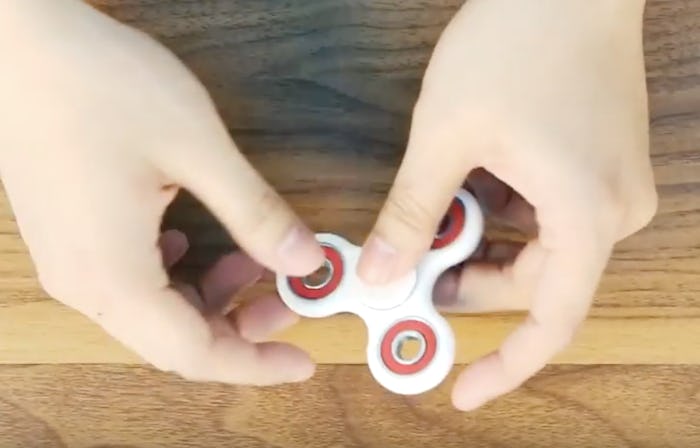The latest toy craze to take the world by storm is fidget spinners. They're everywhere and every kid wants one. But they've also been touted as stress relievers and coping tools for fidgeting, with many sellers claiming that fidget spinners are helpful for kids with Attention-Deficit/Hyperactivity Disorder (ADHD), autism, and anxiety. They are definitely a fun toy, but are fidget spinners actually beneficial?
Fidget spinners are small gadgets that house spinning bearings which allow you to spin them on your fingers, the floor, or on a table. They are affordable and interesting for both children and adults, but according to TIME, they can also help with focus, by stimulating the part of your brain that gets bored. Brain Balance Achievement Centers explained that some children lose focus when they are doing tasks that aren't stimulating enough, and the sensory-motor inputs they gain through fidgeting can help them focus on their present tasks.
Along with helping focus, fidget spinners are being used to help with anxiety. According to Calm Clinic, anxiety can trigger the need to fidget to cope, and the spinners provide a means to fidget, with fidgeting itself being a calming mechanism.
While fidget spinners seem to provide benefits and fun, they can be a distraction, too. According to CNN, fidget spinners are being banned in schools all over the world because of injuries sustained from throwing them around, the noise and visual distractions they pose, and because teachers are finding that kids are focusing more on the spinners than on their classwork.
It's important to remember that fidget spinners aren't a magical toy that will relieve any issues, but rather a tool that gives hands and fingers a way to fidget. It is also probably not a good idea to let your kid take their fidget spinner to school and annoy their teachers. But are they beneficial? Depending on why you need a fidget spinner, they could be as they give you a means to channel your fidgeting energy. But if your kid just wants one to perform tricks at lunch, the benefits aren't quite as important.
